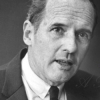Carroll Quigley

Carroll Quigley
Carroll Quigleywas an American historian and theorist of the evolution of civilizations. He is noted for his teaching work as a professor at Georgetown University, for his academic publications, and for his research on the Round Table movement...
NationalityAmerican
ProfessionWriter
Date of Birth9 November 1910
CountryUnited States of America
leaving might empires
It is also in theory, conceivable that some universal empire some day might cover the whole globe, leaving no external "barbarians" to serve as invaders.
control countries country money recent single subject supply
The supply of money in a single country was subject to no centralized, responsible control in most countries over recent centuries.
civilization firsts complicated
A civilization is complicated, in the first place, because it is dynamic; that is, it is constantly changing in the passage of time, until it has perished.
outsiders groups members
A society is a group whose members have more relationships with one another then they do with outsiders.
organization political separation
Our political organization, based as it is on an eighteenth-century separation of powers and on a nineteenth-century nationalist state, is generally recognized to be semiobselete.
religious political intellectual
The backwardness of our religious and social developments is undoubtedly holding back the development of the intellectual and political levels.
actors process irrational
When we approach history, we are dealing with a conglomeration of irrational continua. Those who deal with history by nonrational processes are the ones who make history, the actors in it.
being-free groups behavior
The social sciences are usually concerned with groups of persons rather than individual persons. The behavior of individuals, being free, is unpredictable.
dinosaurs able would-be
A fully integrated culture would be like the dinosaurs, which had to perish because they were no longer able to adapt themselves to changes in the external environment.
character individual nexus
Each individual in a society is a nexus where innumerable relationships of this character intersect.
christian attitude personality
The traditional Christian attitude toward human personality was that human nature was essentially good and that it was formed and modified by social pressures and training.
country issues gold
When goods are exchanged between countries, they must be paid for by commodities or gold. They cannot be paid for by the notes, certificates, and checks of the purchaser's country, since these are of value only in the country of issue.
fear persistence evil
This persistence as private firms continued because it ensured the maximum of anonymity and secrecy to persons of tremendous public power who dreaded public knowledge of their activities as an evil almost as great as inflation.
government way pressure
In addition to their power over government based on government financing and personal influence, bankers could steer governments in ways they wished them to go by other pressures.